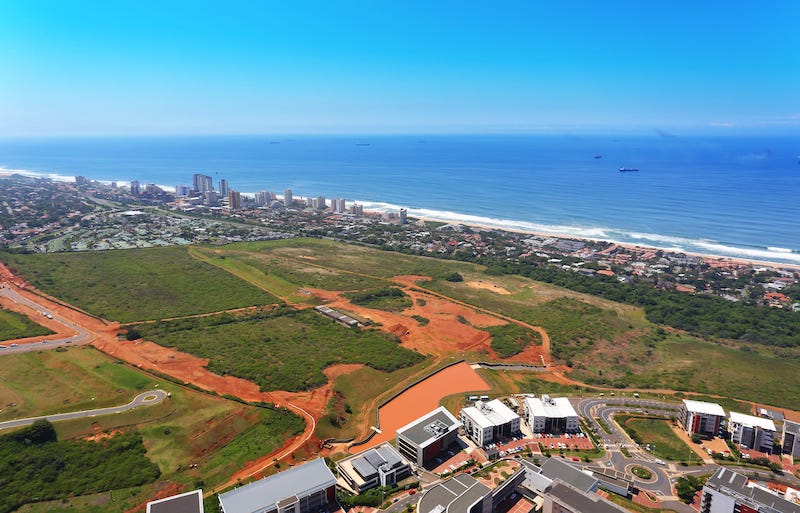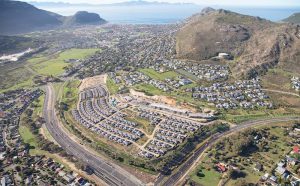
 With the relaxation of lockdown restrictions, it’s back to work for the construction industry, one of our major economic contributors due to the labour-intensive nature of construction activities. In fact, it has been touted as one of the key sectors the government should prioritise to ramp up job opportunities in an effort to revive the South African economy.
With the relaxation of lockdown restrictions, it’s back to work for the construction industry, one of our major economic contributors due to the labour-intensive nature of construction activities. In fact, it has been touted as one of the key sectors the government should prioritise to ramp up job opportunities in an effort to revive the South African economy.
It’s an industry employing hundreds of thousands of workers that was hit hard by the Covid-19 pandemic. There have been suggestions that the impact could result in a year-on-year contraction of 18%, which represents 4% of GDP. Potentially, this could mean the loss of up to 140 000 formal jobs, according to construction market intelligence firm Industry Insight.
For these reasons alone, the reactivation of active construction projects was imperative both for job creation and for the many South African homeowners whose lives have been severely impacted. It is also what prompted the industry itself to take action. Says Cobus Bedeker, MD of Evergreen Property Investments, “The construction sector is already working together to respond to the impact of Covid-19 and ensure the sustainability of this industry over the coming months so as to play its part in our country’s economic recovery.”
President Ramaphosa, speaking recently at the opening of the inaugural Sustainable Infrastructure Development Symposium of South Africa (SIDSSA), pointed out that even prior to the pandemic, South Africa’s dwindling infrastructure investment over the years had caused great hardship for the construction industry. He said that, as construction services are procured now, the government could assess project proposals to ensure the job creation impact is maximised.
In response to Covid-19, the construction sector has since formed a Construction Sector Covid-19 Task Team composed of contractors (main and subcontractors), built environment professional services firms, property developers, manufacturers, professional associations and regulators. It has submitted a comprehensive short- to medium-term plan to the government for actionable reforms to help the sector recover and is working with government to develop an industry-specific Covid-19 Construction Health & Safety Protocol.
This will supplement the already stringent health and safety regulations for construction. Contractors already have well-developed resources in place to comply with legislation requiring site-specific safety plans. Now, additional measures include the provision of appropriate PPE and the regular monitoring of the health and safety of the workforce.
According to Bedeker, “When it comes to construction sites, project managers will need to start thinking of systems to minimise the number of workers so that social distancing requirements can be met, whilst still ensuring construction project milestones and timelines are adhered to.”
One of South Africa’s largest retirement estate living developers, Evergreen Lifestyle, which is owned by property developer Amdec Group and financial services group PSG, had to slam the brakes on seven construction sites and new projects where it employs close to 7 000 people when lockdown was introduced.
With 750 000 m² of housing (over 5 000 units) and facilities across 13 retirement villages either under construction or in the planning phase, its management was understandably relieved when the sector was given the green light to resume.
“There are huge opportunities in this property class in South Africa,” says Bedeker. “Too many of our elderly population are living in inadequate homes when they could be living in an estate offering a sense of support along with a ream of services and amenities.
“To keep up with the demand in estate living we plan to grow our national footprint tenfold to R30 billion in the next decade. “We will grow our base from 1 000 units to 10 000 units by 2030.”
 Bedeker says the ‘pause’ has sharpened developers’ minds about the future, given them time to relook their designs, sales methods and the way their villages function. He explains that the Covid-19 pandemic will strengthen retirement living. It has highlighted the need for a sense of community and convenience which is driving interest in its life rights purchase model. Buyers can purchase the right to live in a home in a retirement village but the developer retains sole ownership and carries the responsibilities for maintenance, clubhouses and health/frail-care centres.
Bedeker says the ‘pause’ has sharpened developers’ minds about the future, given them time to relook their designs, sales methods and the way their villages function. He explains that the Covid-19 pandemic will strengthen retirement living. It has highlighted the need for a sense of community and convenience which is driving interest in its life rights purchase model. Buyers can purchase the right to live in a home in a retirement village but the developer retains sole ownership and carries the responsibilities for maintenance, clubhouses and health/frail-care centres.
“Children have begun to realise that their parents’ health and welfare will be looked after impeccably in a life rights retirement village. It’s clear that lockdown has brought to light the dependence we have on one another, which is something core to the retirement village concept,” Bekeder concludes.
More news
- REFRATECHNIK ASIA NEW ASSOCIATE CORPORATE MEMBER OF WCA
- PART 5: SA’S TRADE DILEMMA: A PODCAST DISCUSSION WITH DONALD MACKAY
- STATE-DRIVEN OPPORTUNITIES FOR SA CONSTRUCTION COMPANIES BUT MANAGING RISK IS A PRIORITY
- PART 4: SA’S TRADE DILEMMA: A PODCAST DISCUSSION WITH DONALD MACKAY
- CONCOR KICKS OFF OXFORD PARKS BLOCK 2A PHASE I PROJECT

